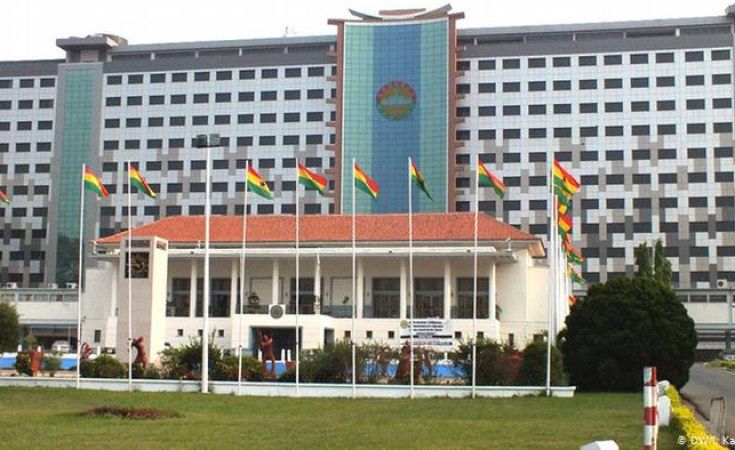The Parliament of Ghana has issued a firm directive restricting access to the Appointments Committee room during the vetting process of President John Dramani Mahama’s ministerial nominees. This measure, communicated in an official statement, underscores Parliament’s commitment to maintaining order, security, and the smooth operation of the vetting proceedings. While acknowledging the public’s keen interest in the process, Parliament emphasized that only individuals with official invitation cards or appropriate accreditation will be granted access to the Committee room and the surrounding parliamentary precincts. This restriction aims to ensure the safety and well-being of Members of Parliament, staff, and the public alike, while also facilitating a conducive environment for the Committee’s work.
The decision to limit access comes in response to the potential for overcrowding and disruption due to heightened public interest in the vetting process. The vetting of ministerial nominees is a crucial aspect of Ghana’s democratic process, holding significant implications for the country’s governance and future direction. The nominees, selected by the President, undergo rigorous scrutiny by the Appointments Committee, which assesses their qualifications, experience, and suitability for the ministerial positions. The public’s interest in these proceedings stems from a desire to understand the potential ministers’ capabilities and their envisioned contributions to the nation’s development.
Parliament’s directive seeks to strike a balance between facilitating public engagement and maintaining the integrity and efficiency of the vetting process. Unrestricted access could lead to overcrowding, logistical challenges, and potential security risks, hindering the Committee’s ability to conduct thorough and effective assessments. By limiting access to authorized individuals, Parliament aims to create a more controlled environment that fosters focused deliberations and ensures the safety of all participants. This approach also reflects a commitment to maintaining the dignity and decorum befitting the parliamentary process.
To accommodate public interest while upholding the access restrictions, Parliament has encouraged individuals without invitations or accreditation to follow the vetting proceedings through live broadcasts. This provision allows the public to remain informed and engaged without physically attending the sessions, ensuring transparency and accessibility. Live broadcasts provide real-time access to the proceedings, enabling citizens to witness the interactions between the Committee members and the nominees, observe the questioning process, and form their own opinions about the candidates’ suitability.
The vetting process itself is a constitutionally mandated procedure enshrined in Article 78(1) of the 1992 Constitution. This article stipulates that the President shall nominate individuals for ministerial positions, who then require parliamentary approval. The Appointments Committee plays a critical role in this process by conducting thorough evaluations of the nominees’ qualifications and suitability. This vetting process serves as a crucial check and balance within Ghana’s democratic framework, ensuring that individuals appointed to ministerial positions possess the necessary competence and integrity to serve the nation effectively.
In essence, Parliament’s directive to restrict access to the Appointments Committee room during the ministerial vetting process reflects a pragmatic approach to balancing public interest with the need for order, security, and efficiency. By implementing this measure, Parliament aims to create a conducive environment for the Appointments Committee to conduct its crucial work while ensuring the safety and well-being of all participants. The provision for live broadcasts further underscores Parliament’s commitment to transparency and public engagement, allowing citizens to witness this vital democratic process unfold. This structured approach reinforces the integrity of the vetting procedure while upholding the principles of accountability and good governance.


